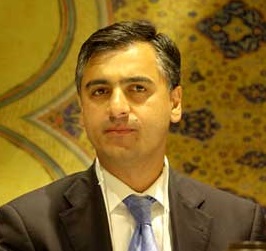- 12 Nov 2013
IRAN, HUMAN RIGHTS AND THE NUCLEAR QUESTION
Abstract
With the focus predominantly on the nuclear question, human rights issues have become increasingly marginalized and risk being ignored completely, especially if the West strikes a “grand bargain” with Iran. Under cover of President Rouhani’s “charm offensive” and willingness to compromise on the nuclear issue, the rate of executions has almost doubled, the condition of political prisoners has deteriorated, and the persecution of religious and ethnic minorities has intensified. The regime is engaging in a “strategic retreat” with the West because of the need to lift economic sanctions for its own survival, but its essential characteristic as an authoritarian militarized theocracy remains the same. However much a short-term rapprochment is desirable, there can be no lasting solution for stability in the middle-east without the progressive democratization of Iran, which will invariably change the whole region. Ironically, because of popular reaction to some 35 years of totalitarianism and violence, Iranian civil society is arguably the most mature in the region, making the prospects of pluralism more viable.
About the Speakers

Payam Akhavan teaches and researches in the areas of public international law, international criminal law and transitional justice, with a particular interest in human rights and multiculturalism, war crimes prosecutions, UN reform and the prevention of genocide. He has published extensively in leading journals, including the widely-cited article “Beyond Impunity: Can International Criminal Justice Prevent Future Atrocities?” in 95 American Journal of International Law 7 (2001), selected by the International Library of Law and Legal Theory as one of “the most significant published journal essays in contemporary legal studies.” He is also author of the Report on the Work of the Office of the Special Advisor of the United Nations Secretary-General on the Prevention of Genocide (2005), served as Chairman of the Global Conference on the Prevention of Genocide (2007), and is Co-Producer of the documentary film “Genos.Cide: The Great Challenge” (2009). His book “Reducing Genocide to Law: Definition, Meaning, and the Ultimate Crime” (2012) from Cambridge University Press has been endorsed by the Prosecutor of the International Criminal Court as “a profound re-thinking of efforts to transform global aspirations into reality.” Professor Akhavan was the first Legal Advisor to the Prosecutor’s Office of the International Criminal Tribunals for the former Yugoslavia and Rwanda at The Hague (1994-2000) and made significant contributions to its foundational jurisprudence. He has also served in the field with the United Nations in Bosnia, Croatia, Cambodia, Guatemala, Timor Leste, and Rwanda. He is a member of the New York and Upper Canada bars and has appeared as counsel and advocate in leading cases before the International Court of Justice (Application of the Convention on Prevention of Racial Discrimination, Georgia v Russia), the International Criminal Court (counsel for Libya in Gadaffi Case, and counsel for Uganda in Kony Case), the European Court of Human Rights (Akcam v Turkey), the Permanent Court of Arbitration (Eritrea-Ethiopia Claims Commission, Guyana v Suriname Maritime Boundary Delimitation, Bangladesh v India Maritime Boundary Delimitation), the International Tribunal for the Law of the Sea (Bangladesh v Myanmar Maritime Boundary Delimitation), and as amicus curiae before the Supreme Court of the United States (Hamdi v Rumsfeld and Padilla v Rumsfeld). Professor Akhavan is also one of the founders of the Iran Human Rights Documentation Centre, serves on the Advisory Board of numerous non-governmental organizations, and has campaigned on behalf of numerous political prisoners. His leadership in the Iranian civil society movement has been featured in the New York Times, Maclean’s, and the award-winning documentary film “The Green Wave”. He has appeared widely on CNN, BBC, Al Jazeera, CBC, CTV, New York Times, Washington Post, Globe & Mail, and other media as commentator and editorialist on human rights issues. In 2005, he was selected by the World Economic Forum as a Young Global Leader. He is the recipient of several other awards and distinctions.




